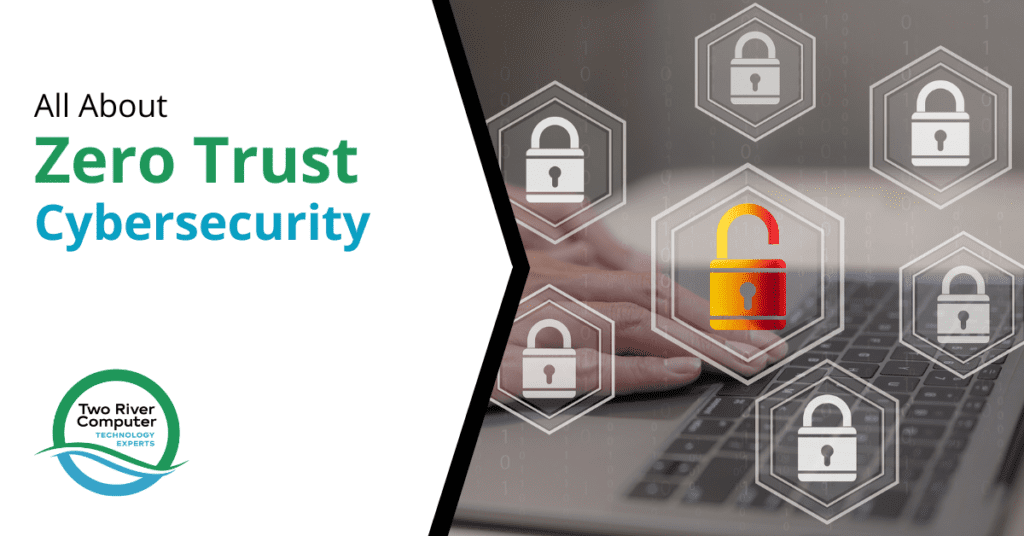
In an increasingly interconnected world, the need for robust cybersecurity measures has become paramount. Cyber threats, such as ransomware attacks, have the potential to wreak havoc on both businesses and individual users.
In response to these evolving challenges, the concept of Zero Trust has emerged as a powerful security framework. Zero Trust operates under the assumption that no user or device should be inherently trusted, regardless of their location within a network.
In this article, we will delve into the concept of Zero Trust, its relevance for businesses and residential users, and explore how software can be used to enforce this security model effectively.
What Is Zero Trust?
Zero Trust is an approach to cybersecurity that challenges the traditional model of trust within networks. Instead of assuming that internal networks are safe, Zero Trust adopts a more cautious perspective, treating all devices, users, and network traffic as potentially compromised until proven otherwise. It aims to minimize the risk of unauthorized access, data breaches, and lateral movement within a network.
The principles of Zero Trust revolve around verifying and validating every user and device accessing a network. This is achieved through a combination of rigorous authentication, continuous monitoring, and access control policies. By implementing these principles, organizations can significantly enhance their security posture and mitigate the potential impact of cyber threats.
Zero Trust for Businesses
Businesses can take advantage of zero trust policies in the following ways:
Ransomware Threats and Mitigation
Ransomware attacks have become increasingly prevalent in recent years, targeting businesses of all sizes. By adopting a Zero Trust approach, organizations can limit the potential damage caused by these attacks. Zero Trust strategies involve segmenting networks, implementing strict access controls, and closely monitoring network activity to detect and respond to potential threats promptly.
Protecting Sensitive Data
Data breaches can have severe consequences for businesses, leading to financial loss, reputational damage, and legal implications. Zero Trust helps organizations safeguard their sensitive data by implementing robust authentication mechanisms, encryption protocols, and access controls. By adopting this approach, businesses can ensure that only authorized individuals have access to critical information, even if other parts of the network are compromised.
Zero Trust for Residential Users
Zero Trust can also apply to residential users. Here are some benefits and examples:
Safeguarding Loved Ones
Residential users, particularly those responsible for the well-being of aging parents, grandparents, or children, can also benefit from the principles of Zero Trust. By implementing stringent security measures, such as robust authentication and access controls, residential users can protect their loved ones from potential cyber threats, including phishing attempts, malware infections, and unauthorized access to personal information.
Ensuring Privacy and Security
In an era where privacy concerns are paramount, residential users can leverage Zero Trust principles to safeguard their personal data. By adopting a Zero Trust approach, users can secure their home networks, limit unauthorized access to devices, and prevent the installation of malicious software. This proactive stance helps ensure privacy and security for individuals and their families.
Enforcing Zero Trust through Software
To enforce the principles of Zero Trust effectively, software solutions can play a crucial role. By installing specialized software on computers and devices, organizations and residential users can analyze network activity for a specified period. At Two River Computer, we can help you do this for a period of 30 days. This analysis allows the software to establish a baseline of trusted behavior for each user and device.
After the baseline is established, the software employs access controls that prohibit the execution or installation of any new software without administrative login. This mechanism ensures that any unauthorized or potentially harmful software is prevented from compromising the network’s security.
Get Started With Zero Trust Today
The Zero Trust approach represents a paradigm shift in cybersecurity, challenging the traditional notions of trust within networks. By adopting this proactive approach, businesses and residential users can significantly enhance their security posture, mitigating the risks posed by ransomware attacks and unauthorized access to sensitive data.
To effectively enforce the principles of Zero Trust, specialized software solutions can be installed to analyze network activity and establish trusted baselines. By leveraging these tools, organizations and residential users can fortify their networks, ensuring that only authorized actions are allowed and potential threats are promptly identified and mitigated.
In a rapidly evolving threat landscape, embracing Zero Trust is a critical step towards building a resilient and secure digital environment. Whether you are a business owner looking to protect your organization or a residential user safeguarding your loved ones, adopting Zero Trust principles and leveraging software solutions can provide peace of mind and robust protection against cyber threats.
Contact Two River Computer today to learn more about implementing Zero Trust principles and software solutions for your specific needs. Our team of experts is ready to assist you in fortifying your cybersecurity defenses and ensuring the safety of your digital assets.


